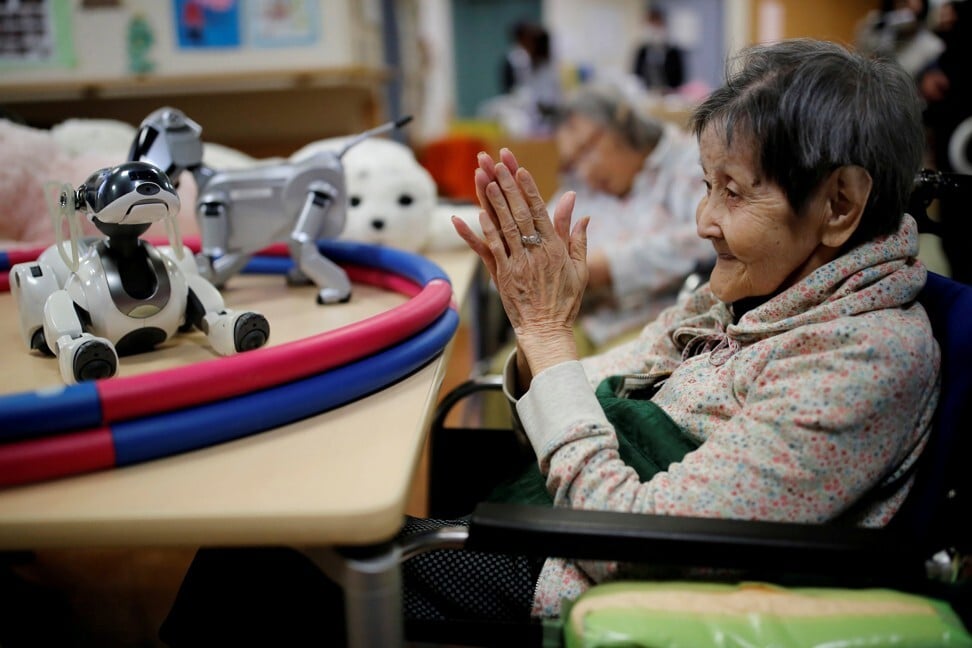
In Japan, elderly women are behind a surge in thefts amid a ‘grey crime wave’
- Police are seeing a surge in offences by the elderly, even as Japan reports its lowest number of crimes in 17 years
- According to one expert, loneliness and boredom may be driving up geriatric crime in a country where one in four people are aged 65 and above

A persistent “grey crime wave” in Japan has left experts concerned and authorities baffled, as police data shows a spike in shoplifting and thefts by the elderly – with most of those responsible being women and repeat offenders.
According to figures released on Tuesday by the Justice Ministry in its annual white paper on crime statistics and trends, the number of arrests in Japan has been steadily declining over the past 17 years, though the “grey crime” trend is a significant outlier.
Last year, arrests fell to a record low of 192,607, and there were 748,559 crimes reported, the lowest since 1945.
While theft cases made up less than half the total offences reported, they accounted for 70 per cent of arrests of people aged 70 or older. And of the 42,463 elderly people who were arrested, one-third were women aged 65 or older – and nine in 10 of the women were detained for shoplifting or theft.
Shinichi Ishizuka, a law professor and director of the Criminology Research Centre at Kyoto’s Ryukoku University, said there were a number of contributing factors behind the rising number of crimes committed by retirees, but for many it was little more than a cry for attention.

“A lot of these cases are old people whose husband or wife has died so they live by themselves, their children have moved out, married, had children and built their own lives, so they do not see them very often,” he said.
“So, to put it simply, they used to lead busy and fulfilling lives, but all of a sudden they have nothing to keep them occupied any more. They are isolated, they are often depressed and, for some, this is a way of getting attention.”
That suggestion is borne out by the ministry statistic that a record-equalling 48.8 per cent of all the people charged were repeat offenders.
For others, the motive for theft is simply to get enough food or money to get through another day, a situation that might become worse as the coronavirus pandemic continues and retirees who took on part-time jobs for a little extra pocket money to supplement their meagre pensions find their already low-paying positions drying up.
In late September, police in Yokohama arrested a 77-year-old man on suspicion of stealing 1,500 yen (US$14.35) from a donations box at a local shrine. The man, who had no fixed address and was unemployed, was believed to have taken the contents of the offerings box on several occasions since the early summer.
In Japan, which has a population of 126 million, more than one-quarter of people are aged 65 and above. That proportion is projected to reach one-third of the total by 2050.
In an effort to get a better understanding of the causes of the problem and head off future waves of “grey crime”, the Justice Ministry has launched a research project, while police departments in areas where there have been significant numbers of crimes by the elderly have devised questionnaires for the perpetrators.
As yet, there have been no comprehensive government-backed campaigns rolled out to address the issue.
As for the overall drop in arrest figures, Ryukoku University’s Ishizuka explained that in a bid to drive down incarceration rates over petty crimes, Japan in 2005 changed its theft laws to include warnings and brief detention spells at a local police station for first- to third-time offenders.
It was only when a fifth or sixth case came to light that charges would be brought, and a habitual offender faced a prison term of two years, he said.
Previously, theft was punishable by up to 10 years in prison and a fine of 500,000 yen (US$4,785), taking up the resources of prosecutors and courts.
